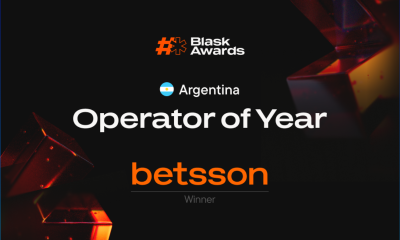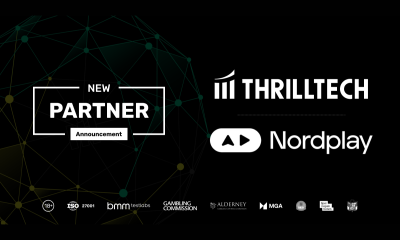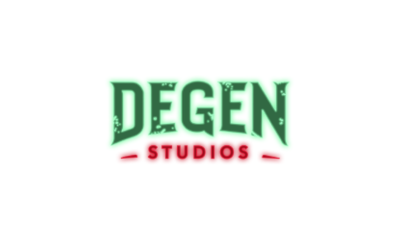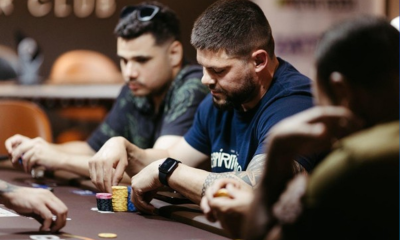Latest News
Real Madrid and Barcelona neck-and-neck as world’s most valuable football brands in the face of COVID-19

- Real Madrid remain world’s most valuable football brand, but Barcelona narrow the gap to just €6 million
- COVID-19 causes total brand value of top 50 clubs to decrease for the first time in 6 years – €751 million or 3.7% is knocked off
- English clubs dominate the ranking with six brands in top 10 and 19 in top 50
- Liverpool inches two spots up into 4th place, following historic Premier League win
- Bundesliga’s 1. FC Köln is this year’s fastest-growing brand, followed by Leicester City and RB Leipzig – all recording over 40% growth
- Tottenham Hotspur’s new stadium takes top spot in Buro Happold’s Venue Performance Rating
Real Madrid remain the most valuable football club brand in the world for 2020, according to the latest edition of the Brand Finance Football Annual. Boosted by winning the LaLiga title for the first time since 2017, the club retained its position at the top of the table in the football industry, but against a backdrop of economic and social disruption, caused primarily by the COVID-19 pandemic, Real Madrid’s brand value has declined by 14% to €1,419 million.
Real Madrid’s disappointing on-pitch performance prior to 2019-20, which saw an earlier-than-normal exit from the UEFA Champions League in 2018-19 and a second successive season adrift of LaLiga champions Barcelona, eroded the club’s dominance of the Brand Finance ranking. The situation was exacerbated by COVID-19, along with a lack of stability around the management of the team. Barcelona, Real’s fierce rivals, are just €6 million behind Real with a brand value of €1,413 million, supported by strong and diverse revenue generation and continued domestic performance in Spain.
COVID-19 knocks off €751 million of brand value
Real Madrid is not the only club to see a drop in brand value this year. COVID-19 has caused the total value of the top 50 football brands to decrease for the first time in 6 years. Through its effect on the three main revenue streams – Matchday, Broadcasting, and Commercial – €751 million or 3.7% has been knocked off the cumulative brand value of the world’s top 50 most valuable football clubs.
The COVID-19 pandemic has challenged professional football worldwide and across all levels. Matchday income for the 501 games remaining in the big 5 leagues dropped to zero, but it is often the smaller clubs and leagues which are more reliant on this revenue stream – in Scotland it makes up 43% of total revenue, compared to only 13% in England.
There have been some positive signs, as Southampton vs Manchester City on BBC broke the Premier League TV audience record with 5.7 million viewers, but the longer-term damage to the game’s economic structure has yet to be revealed.
Richard Haigh, Managing Director of Brand Finance, commented:
“Top-level football has been confronted with the largest existential threat since the Second World War. Loss of income, coupled with health concerns about mass gatherings, have raised question marks about the future of the industry and the financial resilience of clubs across all levels. The full damage of the COVID-19 crisis has yet to unfold and it is not inconceivable there will be casualties in the form of club bankruptcies and changes in ownership.”
Despite the huge implications of COVID-19 for football clubs and their financial results, the majority of the brand value is secured by the clubs’ long-term future – provided they can survive the initial shock. For example, only 21% of Real Madrid’s brand value is delivered by the next five years’ financial results.
Premier power
Real Madrid and Barcelona are followed by a cluster of English Premier League clubs in the Brand Finance Football Annual 2020 ranking, with Manchester United in 3rd position after their brand value fell by 11% to €1,314 million. Liverpool, who won their first league title since 1990 in runaway style, are in 4th spot jumping above Manchester City in terms of brand value, rising from €1,191 million in 2019 to €1,262 million, a 6% increase. Chelsea dropped one place in the table to 8th after their value fell for the fourth consecutive year to €949 million. This was arguably due to the club being absent from the UEFA Champions League and also suffering a transfer ban after being charged with breaking Financial Fair Play Regulations.
Powered by WPeMatico
Atlaslive
Atlaslive Reaches Final Shortlist for Best Live Platform Provider at SiGMA Eurasia 2026

Atlaslive, a provider of B2B iGaming platform technology, has earned a place on the shortlist for the BEST LIVE PLATFORM PROVIDER 2026 category at the SiGMA Eurasia Awards 2026.
The SiGMA Eurasia Awards spotlight excellence across the iGaming, affiliate, and online entertainment industries, honoring companies and solutions that drive innovation, sustainable growth, and measurable impact. The shortlist is announced as part of the SiGMA Eurasia Summit, taking place February 9–11, 2026, at Dubai Festival City in the United Arab Emirates.
“Platform performance is measured in milliseconds, uptime, and player trust. Being shortlisted in this category reflects the technical discipline and delivery standards our teams bring to operators every day.”
—Anastasiia Poltavets, CMO at Atlaslive
Partners, supporters, and members of the community can participate in the awards process through public voting by submitting their support using the following form:
https://share.hsforms.com/11aCinm5wS92yCSiAtXDGUg3s9oo
Taking place during summit week, the awards ceremonies create a key moment for industry professionals to connect, share insights, and celebrate innovation at one of the year’s most prominent gaming events.
About Atlaslive
Atlaslive delivers flexible, scalable iGaming platform technology to operators in regulated markets. Focused on performance, reliability, and continuous product development, Atlaslive enables sportsbook and casino operations aligned with diverse business models.
This document is provided to you for your information and discussion only. This document was based on public sources of information and was created by the Atlaslive team for marketing usage. It is not a solicitation or an offer to buy or sell any gambling-related product. Nothing in this document constitutes legal or business development advice. This document has been prepared from sources Atlaslive believes to be reliable, but we do not guarantee its accuracy or completeness and do not accept liability for any loss arising from its use. Atlaslive reserves the right to remedy any errors that may be present in this document.
About Atlaslive
Atlaslive is a B2B software development company that specializes in creating a multifunctional and automated platform to optimize the workflow of sports betting and casino operators. Key components of the Atlaslive Platform include Sportsbook, Casino, Risk Management and Anti-Fraud Tools, CRM, Bonus Engine, Business Analytics, Payment Systems, and Retail Module. Follow the company on LinkedIn to stay updated with the latest news in iGaming technology.
The post Atlaslive Reaches Final Shortlist for Best Live Platform Provider at SiGMA Eurasia 2026 appeared first on Eastern European Gaming | Global iGaming & Tech Intelligence Hub.
Atlaslive
Atlaslive Reaches Final Shortlist for Best Live Platform Provider at SiGMA Eurasia 2026

Atlaslive, a provider of B2B iGaming platform technology, has earned a place on the shortlist for the BEST LIVE PLATFORM PROVIDER 2026 category at the SiGMA Eurasia Awards 2026.
The SiGMA Eurasia Awards spotlight excellence across the iGaming, affiliate, and online entertainment industries, honoring companies and solutions that drive innovation, sustainable growth, and measurable impact. The shortlist is announced as part of the SiGMA Eurasia Summit, taking place February 9–11, 2026, at Dubai Festival City in the United Arab Emirates.
“Platform performance is measured in milliseconds, uptime, and player trust. Being shortlisted in this category reflects the technical discipline and delivery standards our teams bring to operators every day.”
—Anastasiia Poltavets, CMO at Atlaslive
Partners, supporters, and members of the community can participate in the awards process through public voting by submitting their support using the following form:
https://share.hsforms.com/11aCinm5wS92yCSiAtXDGUg3s9oo
Taking place during summit week, the awards ceremonies create a key moment for industry professionals to connect, share insights, and celebrate innovation at one of the year’s most prominent gaming events.
About Atlaslive
Atlaslive delivers flexible, scalable iGaming platform technology to operators in regulated markets. Focused on performance, reliability, and continuous product development, Atlaslive enables sportsbook and casino operations aligned with diverse business models.
This document is provided to you for your information and discussion only. This document was based on public sources of information and was created by the Atlaslive team for marketing usage. It is not a solicitation or an offer to buy or sell any gambling-related product. Nothing in this document constitutes legal or business development advice. This document has been prepared from sources Atlaslive believes to be reliable, but we do not guarantee its accuracy or completeness and do not accept liability for any loss arising from its use. Atlaslive reserves the right to remedy any errors that may be present in this document.
About Atlaslive
Atlaslive is a B2B software development company that specializes in creating a multifunctional and automated platform to optimize the workflow of sports betting and casino operators. Key components of the Atlaslive Platform include Sportsbook, Casino, Risk Management and Anti-Fraud Tools, CRM, Bonus Engine, Business Analytics, Payment Systems, and Retail Module. Follow the company on LinkedIn to stay updated with the latest news in iGaming technology.
The post Atlaslive Reaches Final Shortlist for Best Live Platform Provider at SiGMA Eurasia 2026 appeared first on Americas iGaming & Sports Betting News.
Latest News
Atlaslive Reaches Final Shortlist for Best Live Platform Provider at SiGMA Eurasia 2026

Atlaslive, a provider of B2B iGaming platform technology, has earned a place on the shortlist for the BEST LIVE PLATFORM PROVIDER 2026 category at the SiGMA Eurasia Awards 2026.
The SiGMA Eurasia Awards spotlight excellence across the iGaming, affiliate, and online entertainment industries, honoring companies and solutions that drive innovation, sustainable growth, and measurable impact. The shortlist is announced as part of the SiGMA Eurasia Summit, taking place February 9–11, 2026, at Dubai Festival City in the United Arab Emirates.
“Platform performance is measured in milliseconds, uptime, and player trust. Being shortlisted in this category reflects the technical discipline and delivery standards our teams bring to operators every day.”
—Anastasiia Poltavets, CMO at Atlaslive
Partners, supporters, and members of the community can participate in the awards process through public voting by submitting their support using the following form:
https://share.hsforms.com/11aCinm5wS92yCSiAtXDGUg3s9oo
Taking place during summit week, the awards ceremonies create a key moment for industry professionals to connect, share insights, and celebrate innovation at one of the year’s most prominent gaming events.
About Atlaslive
Atlaslive delivers flexible, scalable iGaming platform technology to operators in regulated markets. Focused on performance, reliability, and continuous product development, Atlaslive enables sportsbook and casino operations aligned with diverse business models.
This document is provided to you for your information and discussion only. This document was based on public sources of information and was created by the Atlaslive team for marketing usage. It is not a solicitation or an offer to buy or sell any gambling-related product. Nothing in this document constitutes legal or business development advice. This document has been prepared from sources Atlaslive believes to be reliable, but we do not guarantee its accuracy or completeness and do not accept liability for any loss arising from its use. Atlaslive reserves the right to remedy any errors that may be present in this document.
About Atlaslive
Atlaslive is a B2B software development company that specializes in creating a multifunctional and automated platform to optimize the workflow of sports betting and casino operators. Key components of the Atlaslive Platform include Sportsbook, Casino, Risk Management and Anti-Fraud Tools, CRM, Bonus Engine, Business Analytics, Payment Systems, and Retail Module. Follow the company on LinkedIn to stay updated with the latest news in iGaming technology.
-

 BetPlay4 days ago
BetPlay4 days agoBlask Awards 2025: Betano, Caliente, BetPlay, Betsson and others define Latin America’s iGaming landscape
-

 iGaming4 days ago
iGaming4 days agoMajestic Claws Hold & Hit leaps into Spinomenal’s slots portfolio
-

 Canada4 days ago
Canada4 days agoComeOn Launches New Marketing Campaign in Ontario
-

 Latest News4 days ago
Latest News4 days agoThrillTech partners with Nordplay Group to launch ThrillPots across Nordic-facing casino brands
-

 DEGEN Studios4 days ago
DEGEN Studios4 days agoDEGEN Studios brings Wild West chaos to the reels with Sunset Showdown
-

 Brightstar Lottery PLC3 days ago
Brightstar Lottery PLC3 days agoBrightstar Lottery Delivers Industry-Leading Sales Force Automation Solution to Ontario Lottery and Gaming Corporation
-

 bingo halls3 days ago
bingo halls3 days agoBingo Halls and Casinos in Colombia Increased Their Contributions to Healthcare System by 9.3% in 2025
-

 Capped Range4 days ago
Capped Range4 days agoWhat A Capped Range Means In Poker With Three Common Spots



















